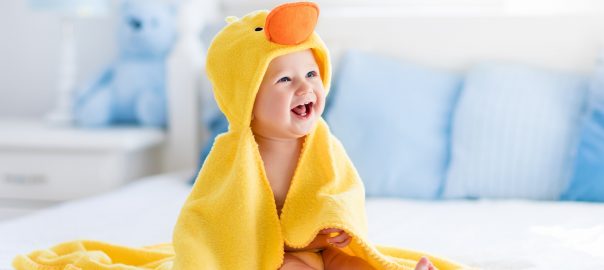
Milk Teeth Care – Is it Important?
Why do baby teeth matter? They fall out anyway, right?” We, as dental professionals hear this question on a daily basis
The answer to this is simple –
Primary teeth are important for a number of reasons. They add on to a child’s physical, emotional, and social development. The development of your child’s primary teeth will have a direct impact on their oral health thereby making it crucial that you monitor your child’s dental health and teach him or her proper oral hygiene habits from the very beginning.
Here are the major reasons why these teeth should be taken care of just as we take care of our permanent (adult) teeth.
- Guiding Force – Most importantly they act as a framework in guiding the movement of the permanent teeth. Primary teeth hold the place in the mouth for the proper eruption of the permanent teeth, so that when your child’s adult teeth begin exerting pressure through the gum line there is already a place made available for them, hence, reducing the chances of crowding or overlapping teeth and improper eruption meaning; if the baby tooth is lost early due to tooth decay or any other reason, the adjacent teeth tend to drift or tip into that space. This causes the permanent tooth to be blocked from erupting into that space thereby leading to maligned teeth.
- The health of young permanent teeth – The permanent /adult teeth develop between the roots of the baby teeth. Baby teeth are much smaller and cavities, once started can spread very quickly through their thin enamel. If these cavities are left untreated, the baby tooth can develop an infection or abscess which can cause a hindrance in the tooth development of the young permanent tooth underneath.
- Nutritional value – It allows your child to chew and eat with ease, in turn providing themselves with proper nutrition, which contributes to both, their oral and overall health. Development of cavities leading to dental pain can lead to nutritional deficiencies if the child`s chewing function is compromised. Also, if these cavities are left untreated, there is a great risk of an infection forming. And this infection can spread to other areas of the body.
- Speech development – To speak in a clear tone leading to the development of good pronunciation and speech habits and reducing the likelihood of speech impairments or other problems later. This is a result of the intermingled mechanism of the tongue, lips and the cheeks along with teeth when forming sounds. The tooth structure also provides support for the developing facial muscles and gives shape to your child’s face.
- Morale booster – As the child grows older, the presence of healthy teeth adds on to their “feelgood” factor. A healthy, beautiful smile boosts their self-image and confidence. On the contrary, if a child is having any pain of dental origin, paying attention in school becomes affected drastically. The mere presence of decayed teeth interferes with a child’s social interactions bringing down their self-esteem. This can also lead to children missing school and parents having to miss work if they have to take children to visit the dentist for emergency appointments.
When Do Baby Teeth Come In?
A baby is born with 20 primary teeth present in the jaws which typically begin to appear in the mouth only when a baby is between 6 months and 1 year.
It is considered to be ideal if all these 20 teeth come out by the time the child turns 3. Though every child is different, usually the first teeth to come are located in the upper and lower front region in the mouth.
During the eruption of teeth, some babies may have sore or tender gums. This can be soothed by gently rubbing your child’s gums with a clean finger, a small, cool spoon or a wet gauze pad. However, if your child is still cranky and in pain, consult your Paedodontist.
Don’t all the baby teeth fall out at six?
While the front baby teeth are shed to be replaced by the adult teeth between the age of 6-8 years, while the ones on the back including the canines and baby molars aren’t replaced until the age of 10-13 years. However, the first adult molar grows at the very back of the mouth when your child is six as it has no baby precursor.
That’s why inculcating the habit of good oral health maintenance to all the children right from an early age can help protect their teeth for decades to come.
DISCLAIMER:Please note that the prices mentioned on this page: (a) present a range (depending upon the severity of the dental condition, the technology used in treatment, type of dental products used, etc.); (b) are true as on the date of this page and may change on a later date, in accordance with the standard company policy; (c) may be subject to standard aberrations or generalizations on account of the use of AI in general Google/internet search by you.Leave a Reply
Leave a Reply
Explore More Similar Posts
Explore More Blogs

